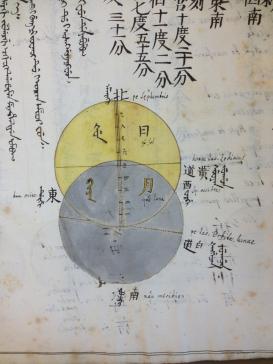This project explores the processes through which specific modes of knowledge-making constituted “China” as an object of study for early modern European scholars. While the project’s temporal focus places it firmly in the “early modern” period—the era of “proto-sinology” before sinology and its sundry descendants found stable institutional homes, the dawn rather than the age of imperialisms—its concern is not to recover an ideologically neutral form of scholarship, nor primarily to establish genealogies for post-Enlightenment, modern, colonialist, or orientalist forms of China studies and Sinocentric specialized discourses, though such connections and related critiques may well emerge. Instead, this project seeks to reimagine the archival horizons on which the languages and literatures, natural phenomena and lands, and histories, customs and peoples variously captured by the metonyms Cathaia–Sinae–China became visible for scholars whose home in the Latin Republic of Letters that spanned England, the Continent, and Russia paradoxically made it possible to assert expertise about a place they conceived of as a world apart. It does so by drawing on the fragmentary evidence of collective intellectual labor—notes on conversations and books; letters whether autographed or copied, draft or sent, in manuscript or print; texts, tables, images that were repeatedly dispersed, selectively collected and reproduced, and so continually transmuted—in order to reconstruct some of the conceptual and material strata within which “China” was made and re-made.

An early eighteenth-century transcription of the xylograph 1669 solar eclipse maps issued by the Jesuit and Qing dynasty official Ferdinand Verbiest; based on a copy then held at the Prussian Royal Library (Berlin).
Project
(2018)
